-
Specialized gas detection helps prevent nuclear weapons proliferation
Researchers aim to design a system capable of sensing, from among the loud signals of a lot of gases, the weak signals from specific gases which are signs of nuclear weapons proliferation. The researchers believe their gas correlation technique will prove ideal for a simple, inexpensive sensor to monitor those few illusive gases. This could change how the nation thinks about monitoring the spread of nuclear weapons. Instead of single-point measurements taken with expensive sensors deployed after someone suspects a problem, 24/7 continuous monitoring could find leaks early.
-
-
Are nuclear weapons safe from cyber-attacks?
Research will look into whether today’s nuclear weapons are safe from computer hacking. Specifically, the research seeks to address the question of whether the ability to use and the confidence in nuclear weapons is being eroded by new cyber capabilities being developed by an increasingly large range of actors.
-
-
Former Pentagon No. 2 suspected of being source of Stuxnet leaks
The Justice Department has informed Gen. (Ret.) James E. “Hoss” Cartwright that he is the target of an investigation into the leaking of a secret U.S.-Israeli cyber campaign to slow down Iran nuclear weapons program. The four-star Marine Corps general served as deputy chairman of the Joint Chiefs of Staff and was part of President Obama’s inner circle on many important national security issues before retiring in 2011.
-
-
U.K. nuclear disaster exercise reveals worrisome lapses in emergency response
Up to six times a year, U.K. nuclear weapons are transported in heavily guarded convoys between production facilities in Aldermaston and Burghfield in Berkshire, where the nuclear bombs are manufactured, and the Royal Naval Armaments Depot at Coulport on Loch Long in Argyll. The trips are required because scientists must regularly examine the 200 Trident missile warheads in order to make sure they are operationally reliable and properly maintained. Every three years, the U.K. Ministry of Defense (MoD) conducts a drill aiming to test how various agencies respond to an accident involving the convoy carrying the nuclear warheads. An internal report on the last drill notes many problems in the response to the simulated accident, including five-hour wait for weapons experts, confusion over radiation monitoring, and ambulance crews refusing to take contamination victims to hospitals.
-
-
Finding the right tools to respond to suspicious powder incidents
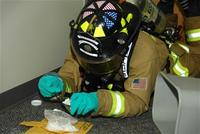
HazMat teams across the United States respond to hundreds of white powder calls each year in large cities where quick decision-making is critical. DHS makes it easier to buy the right technology for bio-threat incidents.
-
-
Growing U.S. concern over North Korean miscalculation
U.S. officials are increasingly concerned with the escalating tensions on the Korean Peninsula and the risk of miscalculation. The fear is that North Korea’s young leader, Kin Jong Un, may have launched the harsh rhetorical campaign against South Korea and the United States for domestic reasons – especially the need to establish his leadership credentials in the eyes of the skeptical North Korean military – but that his youth and inexperience may lead him to over-play his hand. “He is 28, 29 years old, and he keeps going further and further out, and I don’t know if he can get himself back in,” Rep. Peter King (R-New York), former chairman of the House Homeland Security Committee, said.
-
-
U.S. to bolster missile defense to meet North Korean threat
The United States is bolstering the country’s missile defense after a series of explicit nuclear threats from North Korea. The Pentagon will announce Monday that it is deploying fourteen additional ground-based interceptors at missile silos in Alaska and California.
-
-
New proposals to Iran aim to slow down Iranian nuclear “breakout”
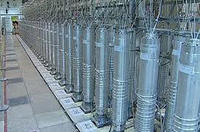
In two days of talks with Iranian representatives, the P5+1 powers offered Iran a new set of proposals which show a subtle shift in the powers’ position: rather than making it impossible for Iran to produce weapon-grade uranium – by shutting down the Fodro centrifuge farm and demand that Iran ship the uranium it has already enriched to 20 percent out of the country – the new proposals aim to make it more difficult, and slow, for Iran to develop weapon-grade uranium. The assumption undergirding the latest proposals is that if the process of producing weapon-grade uranium would be slowed down, it would be easier for Western intelligence services to discover it, and for military intervention to stop it, before a bomb is being produced.
-
-
Iran developing plutonium-based nuke capability
While the world is focusing on Iran’s enriched-uranium nuclear weapons program, evidence has emerged to show that Iran has embarked on a project to make plutonium-based nuclear weapons. This plutonium weapon project is taking place at a facility from which IAEA inspectors have been barred for eighteen months now. Detailed satellite images show that Iran last month has activated the Arak heavy-water production plant, located 150 miles south-west of Tehran. Satellite images of the area around the Arak facility show that numerous anti-aircraft missile and artillery batteries protect the plant — more such missile batteries than are deployed around any other known nuclear site in Iran.
-
-
Iran installs faster centrifuges at Natanz
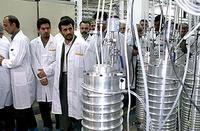
Iranian officials said Wednesday that Iran has begun installing more sophisticated enrichment centrifuges at its Natanz uranium enrichment facility. Speeding up the enrichment process would shorten Iran’s “break out” period: if Iran were to inform the IAEA that it was withdrawing from the nonproliferation treaty (NPT), a step which would allow it to build nuclear bombs without violating the treaty – the time between withdrawal from the treaty and to first nuclear weapons being build will be that much shorter. This will make it that much more difficult for outside powers to intervene to stop the build-up.
-
-
North Korea’s conducts its third nuclear test
North Korea early Tuesday (EST) conducted its third underground nuclear test. The South Korean Defense Ministry said its sensors indicated the nuclea test had a yield of six to seven kilotons (about half the size of the bomb dropped in Hiroshima in August 1945). In 2006 North Korea tested a nuclear device with a yield smaller than one kiloton. Its second text, in 2009, was with a yield estimated to be between two to six kilotons. The yield of the test is only one measure of North Korea’s nuclear progress. There are two other important measures: the fissile material used and the device design.
-
-
Israel, again, beats Syria’s air defense systems
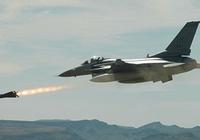
The Tuesday night Israeli air attacks against targets in Syria raise questions about the effectiveness of the vaunted Syrian air defense system. By extension, similar questions should be asked about the effectiveness of the Iranian air-defense system: both systems use similar technology, and both come from Russia.
-
-
U.S. bolsters its military capabilities in the Gulf
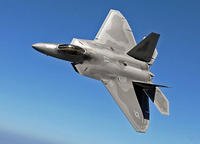
The United States has bolstered its military capabilities in the Gulf by stationing six stealth F-22 Raptors at the al Dafra air base, 150 miles from Iran. The F-22 is the most advanced plane in the U.S. arsenal – and also the most expensive, at about $150 million a plane. The F-22 can carry eight smart bombs which it can simultaneously direct at four different targets on the ground – and do so at supersonic speed while evading enemy’s radar.
-
-
Part Three: Bechtel and the Y-12 security breach
With an annual security budget of $150 million, the Y-12 Nuclear Complex at Oakridge, Tennessee, prided itself on its high-tech security system built to protect more than 179 tons of uranium. After Sister Megan Rice, age 82, and two confederates, both senior citizens, too — the three were armed with nothing but wire cutters and flashlights — broke into the Y-12 facility on 28 July 2012, one security guard was fired. Numerous investigations and reports, however, show that last July’s incident was but one in a series of security failures and breaches at nuclear sites under the supervision of the National Nuclear Security Administration (NNSA). In May, Sister Rice and her aging collaborators will stand trial. Bechtel, a major contractor sharing responsibility for the documented security lapses at Y-12, has just received a federal nuclear plant security contract worth more than $22 billion.
-
-
Thorium holds promise of safer, cleaner nuclear power
Thorium as nuclear fuels has drawbacks, but its main advantage includes generating far less toxic residue. The majority of the mineral is used during the fission process, and it can burn existing stockpiles of plutonium and hazardous waste, saving the need to transport it and bury the waste in concrete. If thorium becomes available as a source of energy in the future, the world will rely less on coal and gas, and wind turbines will become a thing of the past. The risk of a global energy crunch will decrease considerably.
-
- All
- Regional
- Water
- Biometrics
- Borders/Immig
- Business
- Cybersecurity
- Detection
- Disasters
- Government
- Infrastructure
- International
- Public health
- Public Safety
- Communication interoperabillity
- Emergency services
- Emergency medical services
- Fire
- First response
- IEDs
- Law Enforcement
- Law Enforcement Technology
- Military technology
- Nonlethal weapons
- Nuclear weapons
- Personal protection equipment
- Police
- Notification /alert systems
- Situational awareness
- Weapons systems
- Sci-Tech
- Sector Reports
- Surveillance
- Transportation
Advertising & Marketing: advertise@newswirepubs.com
Editorial: editor@newswirepubs.com
General: info@newswirepubs.com
2010-2011 © News Wire Publications, LLC News Wire Publications, LLC
220 Old Country Road | Suite 200 | Mineola | New York | 11501
Permissions and Policies
Editorial: editor@newswirepubs.com
General: info@newswirepubs.com
2010-2011 © News Wire Publications, LLC News Wire Publications, LLC
220 Old Country Road | Suite 200 | Mineola | New York | 11501
Permissions and Policies
